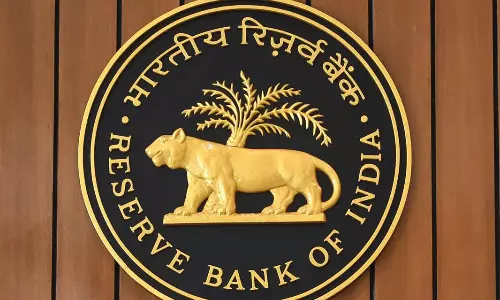
Let morality be the soul of brand
text_fieldsThe three-day 44th World Congress of Inernational Advertising Associatin (IAA) concluded with emphasis on value considerations in not only the sphere of advertising but in business and corporate horizons too. Ample attractions had adorned the summit including humanoid robort Sofia before the 2,000-plus delegates from over 25 countries. However, what made the conference stand out was its theme 'Brandh Dharma, What's coming Next?' which served as a reminder for recapturing the values of humanity and morality in the world of global business.
When the conference uses a premise that brand as the first face of business should be invested with morality, it epitomises the aspirations of consumers the world over. The different strands of this theme were dealt with by around 40 prominent figures with a firm footing in the belief that business world should regain its credibility. In fact, the theory that there is no need of value-awareness in the world of production, advertising and marketing, and the perception that trade sector is genetically morality-neutral has led to not only a credibility crisis but also to a fall in efficiency. It may be merely coincidental that the world is thinking of morality here in India at the same time when through a Supreme Court order there was a contempt of court conviction of Anil Ambani. But the incidents surrounding the case underline how urgent such thoughts have become.
The Kochi congress sees 'dharma' as an urgent need in all the sectors of business world. Thoughts aired by business manates and celebrities on diverse areas covering poduction, humanitarian attitude to labour, production methods, extraction and use of raw materials, questions whether the atmosphere and water are polluted and whether gender justice and respect are ensured, claims made through advertisements, and honesty in transactions, all put together make a list of essential considerations to be heeded to rebuild morality in business world. But between compiling a list and putting them to practice, there is a gap wider than modern-day advertisements and facts. Ipso facto, more than in the comprehensiveness of its content, IAA congress will become truly valuable in prportion to the extent of earnestness and honesty observed in practice. Given that the corporate sector has a no small role in one of the biggest apprehensions about future, i.e. global warming, there needs to be goal-driven and effective steps in that respect. There is substance is the view expressed by some, that more than laws, self-restraint and social commitment will be effective in this regard. Technological advance should have a human face. Digital gains should not result in loss of privacy. Global economic inequality should also form a subject in the business discourse - substantial data related to this had come out recently at the time of World Economic Forum (WEF). Here again the brunt of responsibility falls on corporates. Billionaires evading tax by using loopholes of law and through other tactics, should see the poor who are forced to commit suicide in debt trap. A demand raised at WEF was that they should not only desist from tax evasion but also have to pay above 50 per cent of income as tax, a subject on which there should have been lectures with thoughts of morality, and decisions.
There is another area, along with ecological disaster and economic disparity, that calls for clear policy and action plan: the field of advertising, indicated by the very name of the organizers of the Kochi congress, IIA. The major missing element in advertisements - that hide truth and is replete with exaggeratons - is 'dharma'. It is not only the media, but the public too that rely on advertisements. Firms that give adverts should be able to ensure that they are not bereft of morality. Ethical values are not to be violated. The statement by Mark Pritchard that 29 per cent of adverts portray women negatively is as much a confession as an eye-opener. And the media also owe it to humanity that they reject advertisements which promote fraud and superstitution. And brand ambassadors too share that an obligation. The policy of not posing for adverts on smoking and alcohol, followed by Amitabh Bachchan and Sachin Tendulkar, is a model.
What happened in Kochi was a virtual brain-storming, not decisions or action programme. As such it was a good beginning. Those who made it possible deserve kudos for having initiated thouths on the morality that company owners who form just 2 per cent of world population should observe towards the remaining 98 per cent. If thoughts evolve into policies, and translate into actions, 'brand dharma' congress will become a milestone. If so, 'What is to come' will become happy days – not only for others but to the business world itself.























